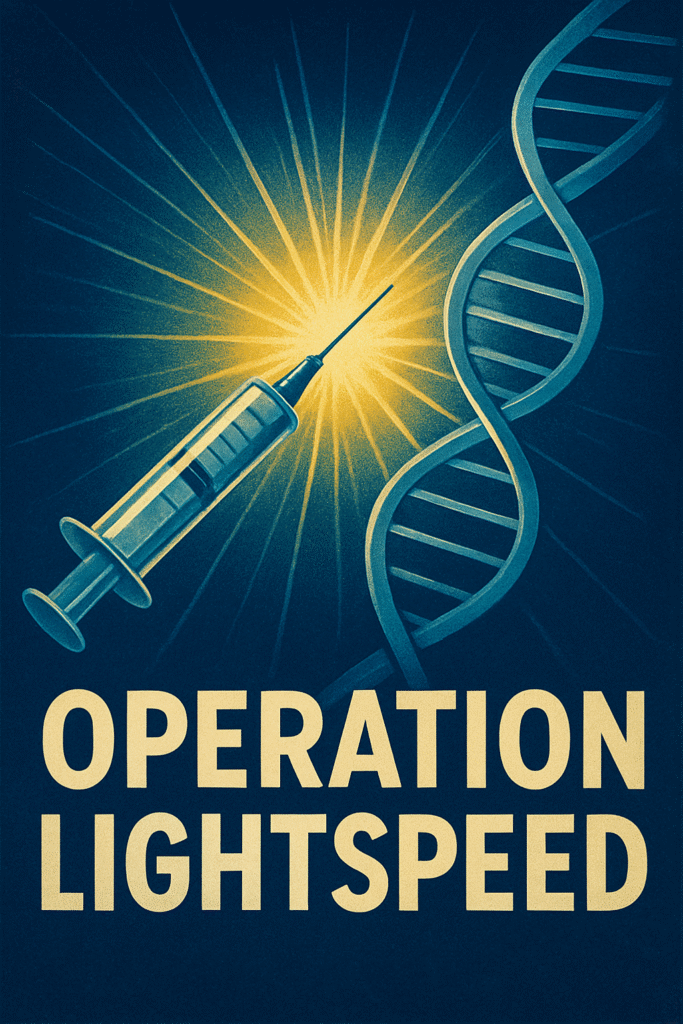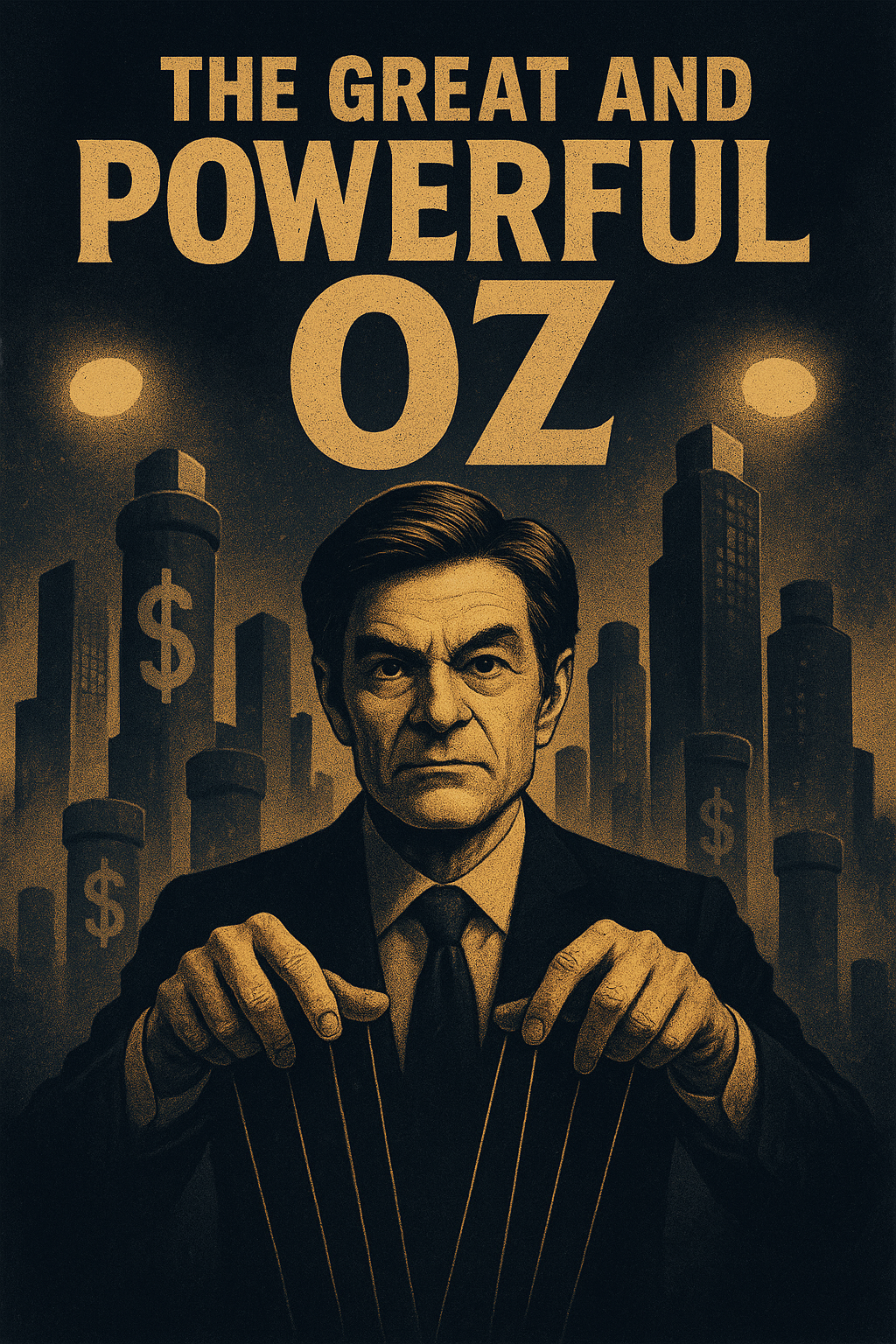The Dr. Oz Problem: When Medicine Meets Money
“You (Dr Oz) are the mastermind behind everything.” Albert Bourla – CEO of Pfizer
Mehmet Oz has built more than a media empire. Once the nation’s beloved TV doctor, offering health tips to millions, he now stands at the center of a high-stakes ethical dilemma: can someone with massive private investments truly serve the public’s health?
As head of the Centers for Medicare & Medicaid Services (CMS)—the agency overseeing healthcare coverage for over 160 million Americans—Dr. Oz controls a system worth trillions of dollars. Yet his personal fortune is entwined with many of the very corporations CMS is meant to regulate.
The Financial Web
Public filings reveal Oz’s deep financial entanglements. He holds—or has held—stakes in insurance giants like UnitedHealth Group, Cigna, and CVS Health, all of which profit from CMS-managed programs. His pharmaceutical portfolio spans Johnson & Johnson, AbbVie, Bristol-Myers Squibb, and even BioNTech, the German biotech firm behind the Pfizer COVID-19 vaccine. Add in tech titans like Amazon, Microsoft, and Nvidia, all expanding into healthcare through AI, cloud computing, and telemedicine, and the web becomes impossible to ignore.
This raises a stark question:
👉 Can Dr. Oz act impartially when his wealth depends on the industries he regulates?
The BioNTech Connection: Project Lightspeed

And no wonder, for Satan himself masquerades as an angel of light. (2 Cor 11:14)
BioNTech, co-founded by Turkish-German scientists Dr. Uğur Şahin and Dr. Özlem Türeci, launched Project Lightspeed in early 2020, months before the U.S. unveiled Operation Warp Speed. Its mRNA vaccine partnership with Pfizer generated billions—transforming both global healthcare and investor portfolios.
For Dr. Oz, now shaping national health policy, investments in a vaccine-maker pose urgent ethical questions: was this confidence in medical innovation, or strategic positioning in one of the century’s most lucrative biotech ventures?
Even if Oz has since divested, the lack of transparency fuels public skepticism. And in healthcare leadership, trust is everything.
Politics, Profit, and Perception
Oz’s political alliances add another layer of complexity. His ties to Donald Trump and emerging association with Robert F. Kennedy Jr.—figures with contrasting approaches to pharmaceuticals—place him in a paradoxical position.
How can a man connected to anti-corporate populism also hold stakes in the companies he regulates? That tension may reveal the heart of the “Dr. Oz problem”—a leader torn between public duty and private profit.
The Cost of Conflicted Leadership
Consider Oz’s reported $30 million stake in Amazon, a company rapidly moving into healthcare data and digital medicine. When the same corporations shaping the future of care also line the pockets of regulators, policy decisions risk becoming profit-driven.
Even absent legal violations, perception matters. And in governance, perception often shapes reality.
Where Money Meets Medicine
Dr. Oz’s case exposes a systemic issue: America’s health governance blurs the line between public service and private interest. Ethics rules remain voluntary, oversight is weak, and transparency is incomplete. Until officials are required to place assets in blind trusts and disclose financial ties fully, the public will continue to ask:
Who is our healthcare system really working for—the people, or the portfolio?

The Final Question
Dr. Oz may have spent years healing bodies. Now, he’s tasked with reforming a system he is financially entangled with.
⚠️ Can a man whose fortune rises with corporate healthcare profits ever be trusted to reform it?
🎥 Watch Dr. Oz take the Pfizer shot on Facebook.
🧠 Investigate deeper. Question everything. Stay free.
UPDATE 11/8/2025
In 2022, the prestigious Novo Nordisk Prize was awarded to Özlem Türeci, Uğur Şahin, Katalin Karikó, and Drew Weissman for their pioneering work on messenger RNA (mRNA) technology, which was central to the development of COVID-19 vaccines. The award recognized their independent, decades-long contributions to medical science in general, particularly in mRNA-based vaccines and cancer therapies, and was not tied to Novo Nordisk’s commercial products like Ozempic or Wegovy.
This award comes from the independent Novo Nordisk Foundation, which has corporate interests in the Novo Group companies, including the pharmaceutical company Novo Nordisk.
Gordon Findlay is a Global Brand Director who works for this same company, Novo Nordisk, based in Basel, Switzerland. While he works for the company, he was not involved in the scientific discoveries recognized by the 2022 prize.
